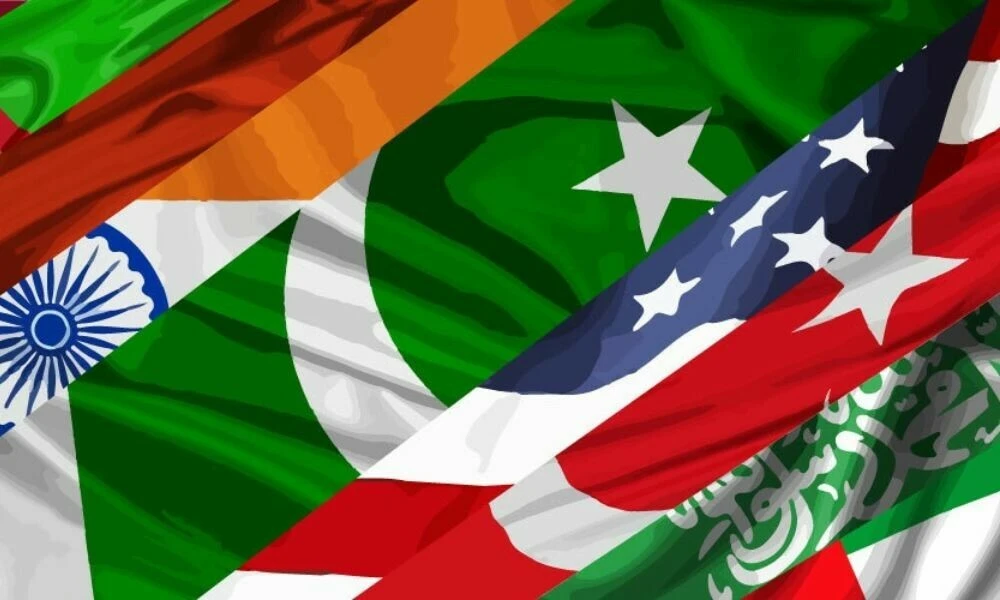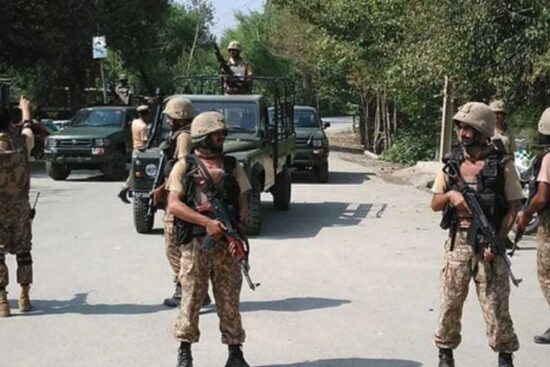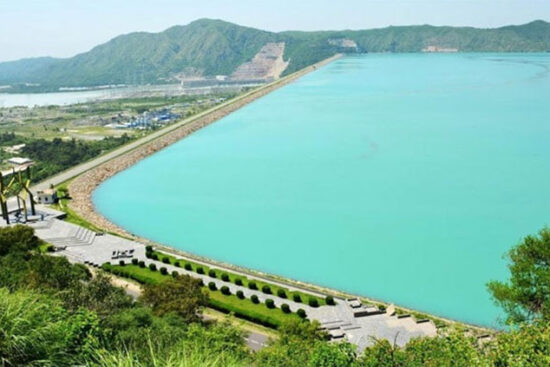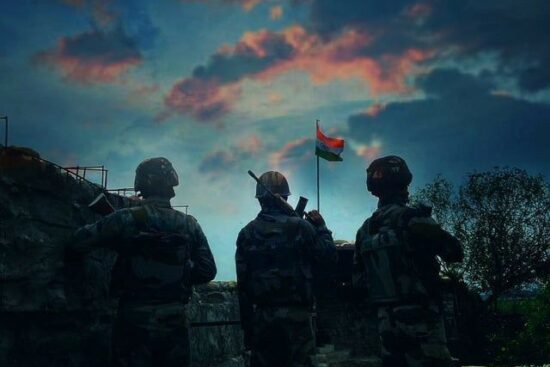
As the dust settles after the 2024 Elections, the new Pakistani Government faces a complex regional and global landscape, which necessitates a re-evaluation and potential overhaul of its external relations. To navigate this tricky path, persuasion of a pragmatic approach in Pakistan’s foreign policy is a must, including prioritizing national interests, regional stability, and sustainable economic development.
Rebalancing Relations with the United States and China
Pakistan’s close ties with China remain the cornerstone of Pakistan’s foreign policy. However, keeping a careful balance in its relations with China and the United States is critical. Pakistan must use its strategic position to encourage collaboration between the two countries rather than becoming a party to the escalating conflict. The long-standing partnership with China, as demonstrated by the China-Pakistan Economic Corridor (CPEC), remains critical.
Pakistan should seek to deepen economic cooperation with China by guaranteeing the timely completion of CPEC projects and finding new options for partnerships in sectors such as technology and innovation. Simultaneously, Pakistan should endeavor to renew its relations with the United States, focusing on areas of common interest such as counterterrorism and economic cooperation. It is critical to avoid the mistakes of previous times, in which Pakistan became unduly reliant on a single big power. An effective and broad-based connection with the United States which includes people from all walks of life is an ideal proposition.
Also Read: Resetting an Old Partnership
How Must Pakistan & the US Engage?
Navigating Relations with Iran and India
Pakistan and Iran have always had a cordial relationship, with similar cultural and religious links. However, regional tensions and the complex geopolitical landscape, particularly between the United States and Saudi Arabia, have frequently strained the alliance. Pakistan’s policy might include strengthening economic and cultural connections with Iran while remaining neutral in regional disputes.
Pakistan’s recent decision to restore the Iran-Pakistan gas pipeline demonstrates forethought. It avoids a significant penalty, meets Pakistan’s energy demands, and restores strained relations with Iran in the wake of an unprovoked violation of Pakistan’s territorial integrity in January 2023. This timely move may boost bilateral ties and assist Pakistan in overcoming its energy shortage.
Pakistan has continuously advocated for focused conversation and constructive discussions to settle all outstanding concerns, including the main disagreement over Jammu and Kashmir. But India’s recent moves on Kashmir have heightened tensions and impeded efforts to promote cooperation and peace.
Pakistan believes that India should take the initiative to create an atmosphere that is favorable to deep and fruitful discussions. In this regard, it would be imperative to take back the acts that India took in Jammu and Kashmir on August 5, 2019, which were labelled to be unilateral and illegal.
Revitalizing the Afghan Relationship
The expulsion of illegal Afghan refugees from Pakistan must be carried out with diplomacy and legal procedures.
Due to their similar histories, geographical location, and overlapping security issues, Pakistan and Afghanistan are inextricably linked. Pakistan has a fundamental stake in an Afghanistan that is stable and peaceful. To advance national reconciliation and tackle the evil of terrorism that originates in Afghanistan, the new administration must collaborate with all Afghan stakeholders. The expulsion of illegal Afghan refugees from Pakistan must be carried out with diplomacy and legal procedures.
Strengthening Ties with the Gulf States and the Muslim World

Pakistan has traditionally friendly relations with the Gulf States, particularly Saudi Arabia. Building on these foundations, Pakistan can deepen its economic engagement with the Gulf, drawing much-needed investment and creating more possibilities for its skilled labour force. Pakistan may benefit economically from the Gulf by creating Free Trade Agreements, collaborative ventures, and enabling skilled worker movement.
Furthermore, by utilizing its position in the OIC, Pakistan may encourage peaceful conflict resolution, religious dialogue, and humanitarian help throughout the Muslim world. While keeping tight connections with longstanding friends, Pakistan can broaden its cooperation by pursuing collaborations with developing Muslim economies such as Indonesia, Malaysia and Turkey.
East-West Connectivity
Promoting inter-regional collaboration Pakistan’s foreign policy should prioritize connectivity between the East and the West. The potential for promoting cross-border trade and economic integration through organizations such as the South Asian Association for Regional Cooperation (SAARC) is advantageous to all member states. To guarantee that the China-Pakistan Economic Corridor (CPEC) produces real economic advantages and acts as a model for regional connectivity, Pakistan must also make the most of its strategic location within China’s Belt and Road Initiative (BRI).
Pakistan’s strategic location offers it a great chance to act as a link between the East and the West.
Pakistan’s strategic location offers it a great chance to act as a link between the East and the West. By placing a high priority on East-West connection, Pakistan can reap major geopolitical and economic rewards, promoting regional integration and being a major player in international trade. Additionally, Pakistan can use its advantageous location to extend the reach of the China-Pakistan Economic Corridor (CPEC) into Central and West Asia, establishing a crucial land and maritime link for commerce and energy cooperation, especially in light of Russia’s isolation and the need for the area to diversify.
Economic Diplomacy at the Forefront
Economic growth and foreign policy are closely intertwined. To improve its reputation abroad and take immediate action on urgent home economic issues, the new Pakistani government needs to place a high priority on economic diplomacy. To do this, it is necessary to diversify export markets by establishing closer trade relations with countries in Southeast Asia, Central Asia, and Africa. There are prospects for Pakistani enterprises in these places due to their unexplored potential. Pakistan should also concentrate on luring in foreign direct investment (FDI). Investor confidence can be greatly increased by establishing stable rules, expediting regulatory procedures, and fostering a favourable business climate.
Enhancing Pakistan’s Global Image
Perceptions of radicalism and instability have frequently damaged Pakistan’s reputation internationally. Defying this narrative calls for a coordinated, multidimensional effort. Initiatives in public diplomacy should be used to highlight Pakistan’s historical legacy, rich cultural history, and contributions to the global community. Increased tourism can also aid in presenting a favourable picture of Pakistan. From its immaculate coastline to its gorgeous northern mountains, the nation is known for its varied and stunning terrain. Investing in tourism infrastructure, easing visa requirements, and establishing focused marketing efforts can all aid in drawing tourists from around the world.
All this cumulatively underscores the intricate labyrinth of Pakistan’s foreign policy. With the duality of challenges and the need to walk a tightrope in a grand geopolitical contestation paradigm, Pakistan’s foreign policymakers have to be cognizant of bilateral, regional and global nuances. Owing to its geostrategic location, political clout and historical affinity with world powers in a country that has immense human capital, significant potential for shared prosperity and attendant challenges.
The opinions shared in this article reflect the author’s personal views and do not necessarily align with the institution’s official stance.

















Comments (1)
binance-says:
July 25, 2024 at 2:48 amCan you be more specific about the content of your article? After reading it, I still have some doubts. Hope you can help me.